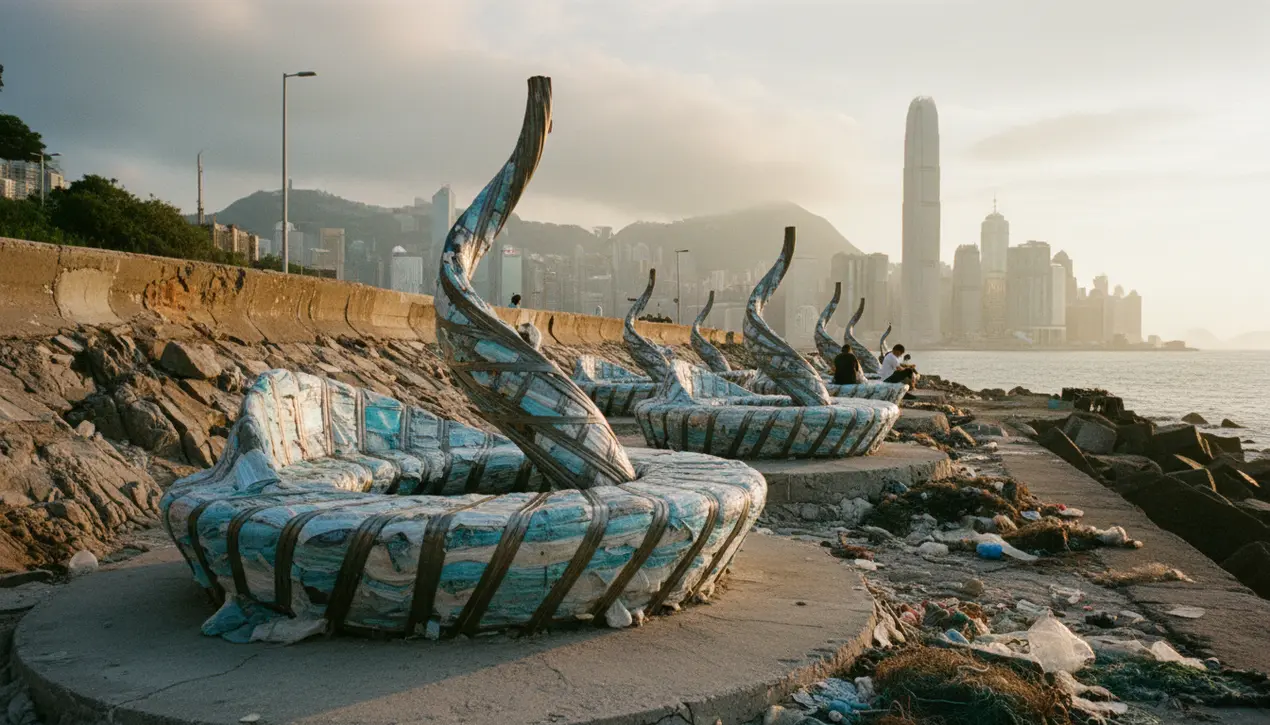
Otherreal estateSustainable Architecture
Helical urban furniture from upcycled masks on Hong Kong coast.
RA
Rachel Adams
2 hours ago7 min read1 comments
Along Hong Kong's eroded coastline, a striking intervention emerges where environmental crisis meets pragmatic design—helical urban furniture crafted from upcycled surgical masks and reclaimed metal sheets, a project by design py that speaks volumes about our pandemic legacy and consumption patterns. This isn't merely a seating arrangement; it's a biological statement, a tangible response to the estimated 129 billion face masks discarded globally each month, a significant portion of which choke marine ecosystems.The choice of Hong Kong's 'lost coast' is profoundly symbolic, a region where urban expansion has long battled with natural preservation, now hosting structures that embody a circular economy in action. The helical form itself is a nod to natural DNA structures, a deliberate contrast to the rigid, often sterile nature of conventional urban furniture, suggesting that solutions to man-made problems can, and should, draw inspiration from organic, resilient systems.The process of transforming medical waste—a material laden with both biological and psychological weight—into public infrastructure required innovative sterilization and composite material engineering, a technical feat that underscores a broader shift in how we perceive waste not as an endpoint, but as a raw material for the next cycle of use. This project sits at the critical intersection of public health, urban planning, and ecological stewardship, challenging municipalities worldwide to reconsider their waste streams and public spaces as integrated systems.While the immediate visual is one of aesthetic innovation, the deeper narrative is one of remediation, a small but potent act of healing a landscape scarred by both industrial neglect and a global health emergency. The furniture serves as a daily, tactile reminder to citizens of their collective responsibility, transforming a symbol of fear and isolation into one of community and sustainable coexistence.Its presence on the coast, where land meets sea, further emphasizes the global nature of the pollution crisis—a local solution with implications for every coastal city grappling with the plastic tide. As climate anxiety mounts and single-use plastics remain a pervasive threat, initiatives like this from design py offer a blueprint, not just for furniture, but for a more thoughtful, regenerative approach to design itself, where every object tells a story of its past life and its future purpose.
#upcycled materials
#urban furniture
#surgical masks
#sustainable design
#Hong Kong
#public space
#featured
Stay Informed. Act Smarter.
Get weekly highlights, major headlines, and expert insights — then put your knowledge to work in our live prediction markets.
Related News
Comments
Loading comments...
© 2025 Outpoll Service LTD. All rights reserved.